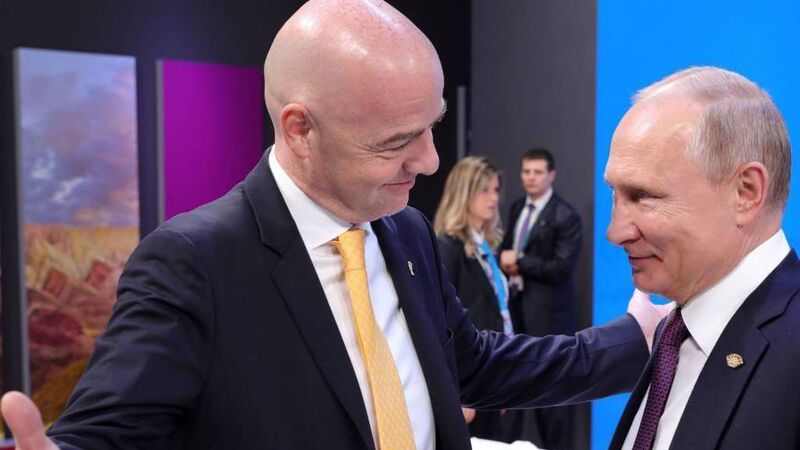Paul Rouse: History won't look kindly on moral bankruptcy of too many sporting administrators

Russia's President Vladimir Putin (R) greets FIFA's President Gianni Infantino on the second day of the G20 Leaders' Summit in Buenos Aires, on December 01, 2018. - The leaders of countries representing four-fifths of the global economy opened a two-day meeting in Argentina facing the deepest fractures since the first G20 summit convened 10 years ago in the throes of financial crisis. (Photo by Mikhail KLIMENTYEV / SPUTNIK / AFP) (Photo credit should read MIKHAIL KLIMENTYEV/AFP via Getty Images)
There is no end to the array of statistics that set out the importance of sport to modern society. These statistics – compiled by states and sporting organisations and research institutes and businesses – document virtually every aspect of the modern sporting world. From the percentage of the global population who play and watch sport to the centrality of sporting events and sports merchandising to the economy, the evidence of how our world is soaked in sport is undeniable.
Every society for which we have meaningful evidence holds evidence of people playing games. The history of millennia of people playing games is, in part, the story of people finding new ways of doing the same thing: playing games competitively.









